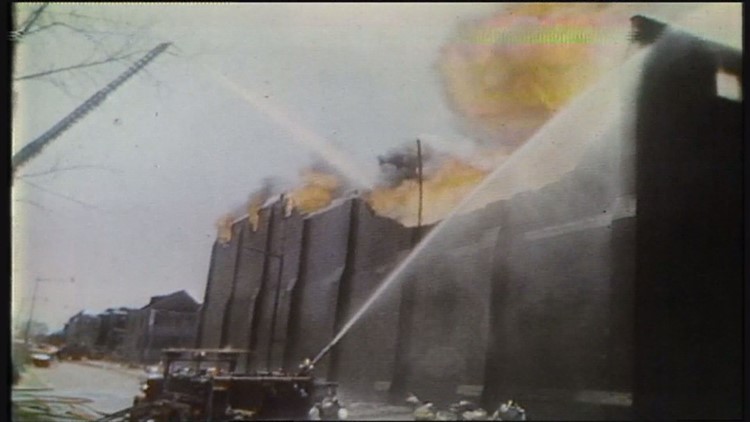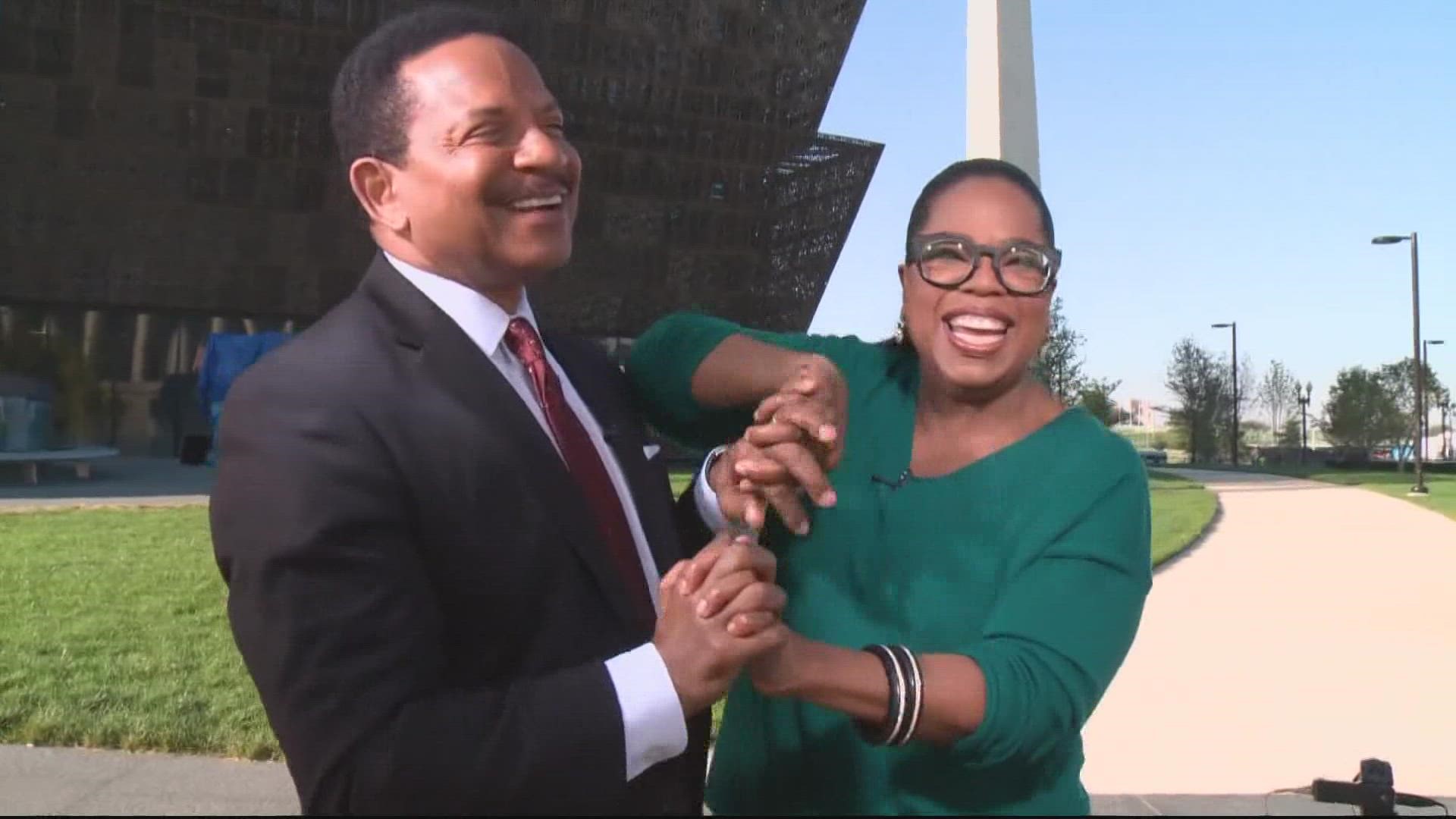WASHINGTON (WUSA9) — By any measure, D.C. is on a roll by most measures.
One thousand new residents, many of them young professionals are moving into the city every month. They are moving into former riot corridors in Shaw and Columbia Heights.
Rick Lee, owner of Lee's Flower and Card Shop appreciates all the new business.
“A lot of them are coming in to this area because you got all these brand-new buildings and what not and then we have a lot of new commerce up here," he said. "You got a movie theater and stuff like that, nightclubs so it’s a nice area.”
Fifty years ago, Rick and family were huddled inside the shop business his father had started. Prepared to fight off angry young black men who were setting fires and looting throughout the area following news that Dr. King had been killed.
PHOTOS: Behind the scenes
“We didn't know if we were going to get burned out or not because we were in here all night long trying to protect the place. You know I had a shot gun up in here. I wrote Soul Brother on the window and so we were ready in case something jumped off but we didn't know what was happening,” said Lee.
A few steps down U Street Ben’s Chili Bowl and the Industrial Bank of Washington were also spared:
“The area went into a decline and those businesses didn't reopen and middle class began to move away,” said Virginia Ali, owner of Ben’s Chili Bowl.
B. Doyle Mitchell is the President of Industrial Bank which was founded in 1934 by his grandfather.
“For us we just never left and for us our customers never left thru the riots,” Mitchell said.
"After the riots you had businesses that moved," he said. "The nightclubs and restaurants were not there anymore and then the drugs set in and you had a lot of poverty in the 70s.
"All hell broke loose" for decades after the riots, drugs and prostitution were a big part of the economy.
Unemployment had gone through the roof. Blacks who could fled to the suburbs.
From 1968 to 1998, the city’s overall population dropped by 200,000 people.
Industrial Bank was the only bank to help finance the holding of perhaps the most important restaurant to open in the 14th Street riot corridor. That restaurant was Busboys and Poets at 14th and V streets, NW opened in 2005.
“The block between 14 and 13 were crack houses,” said Andy Shallal.
Shallal is an Iraqi American who moved to the U.S. with his family in 1966. They lived in Arlington, VA but he snuck into D.C. as a teen.
“Coming to 14th Street was something you did not tell your mother you were going to do. It was a place for drug dealing and open market drug dealing and prostitution,” said Shallal.
Shallal wanted his restaurant on 14th street and said, “All of this history was being loss as things were changing in the city, lots of people moving in that didn't know anything about the civil rights, did not know anything about the relationship of civil rights or leadership.”
He called his restaurant Busboys and Poets to honor some of the great black poets and playwright guts of the Harlem renaissance like Langston Hughes.
“It was also chocolate city, it was city that was predominantly black and has a predominantly a black culture. A city of music, a city of poetry, a city of literature and reading and I just felt like somebody needed to preserve that,” he said.
RELATED: 'Out of a mountain of despair, a stone of hope' | MLK Memorial brings famous speech to life
He wanted his restaurants and now he has a few to be a place where people of different cultures could gather.
"Honestly, I couldn't get any partners they wouldn't buy into the idea of what I wanted to do because it was so unique and so personal," Shallal said. "For me, not being on the white team and not being on the black team either made me kind of made me uniquely situated that I could actually look at the absurdity of race, the ridiculousness of race in America and for me, MLK’s assassination 50 years ago was my introduction to race in America."
The one financial institutional willing to lend money to Busboys and Poets in the beginning was the Industrial Bank of Washington.
The same financial institution that kept Ben’s Chili Bowl and Lee’s Flower shop afloat during those tough times.
The District’s population has grown. It’s now at 700,000 residents but 50 years after Martin Luther King’s assassination and the riots, this is no longer “Chocolate City.”
Blacks are no longer a majority of the population. There is no racial majority. That bothers a lot of people but everybody.
“Race determines everything in America today," Shallal said. It determines where you live. Determines your health. It determines your wealth. It determines who your friend are, determines where you go out to eat."
"Everything is revolved around race. And yet we continue to deny that race is something that we just image. It’s not, it’s very real and it’s very effective. It effects people in a very, very serious way. And unless we talk about it, unless we actually open up a dialogue about it we will never that post racial society that everybody dreams about," he said.



